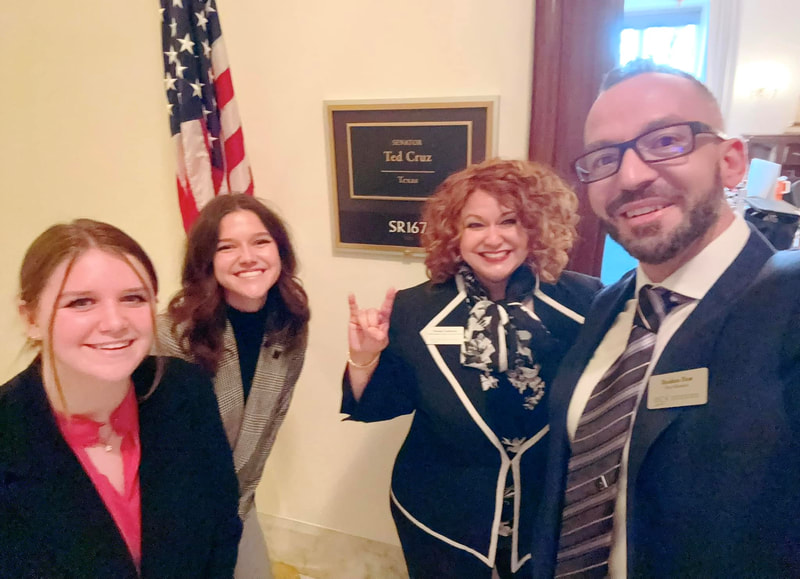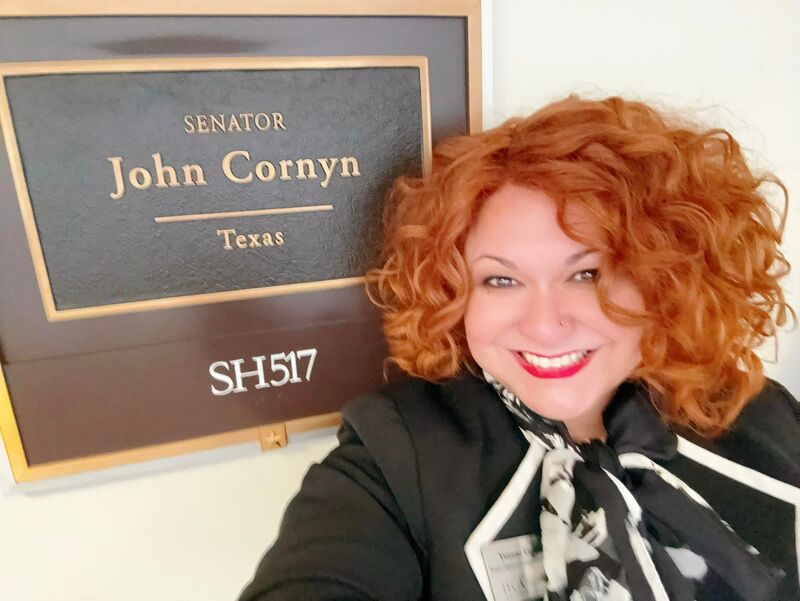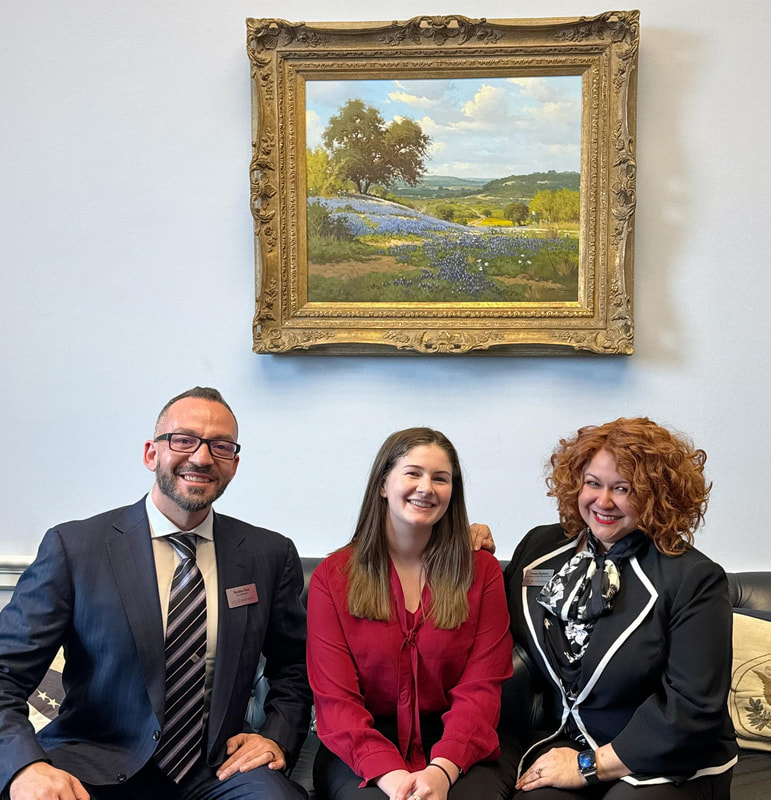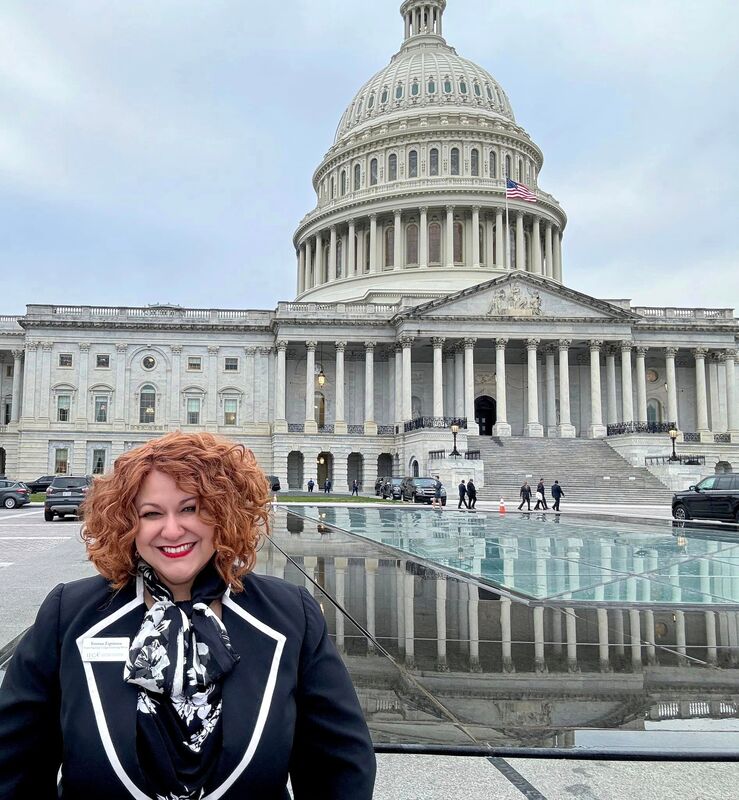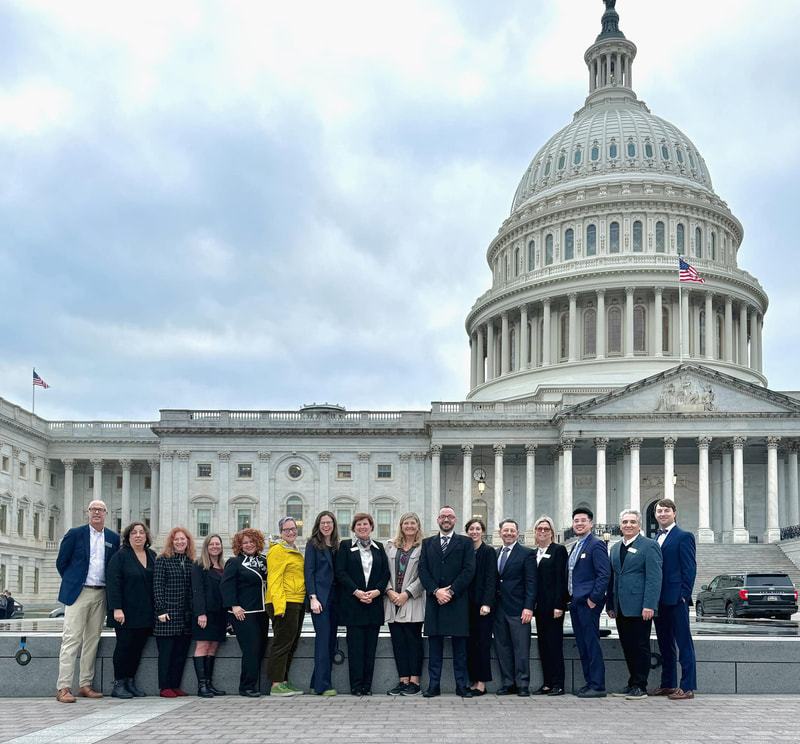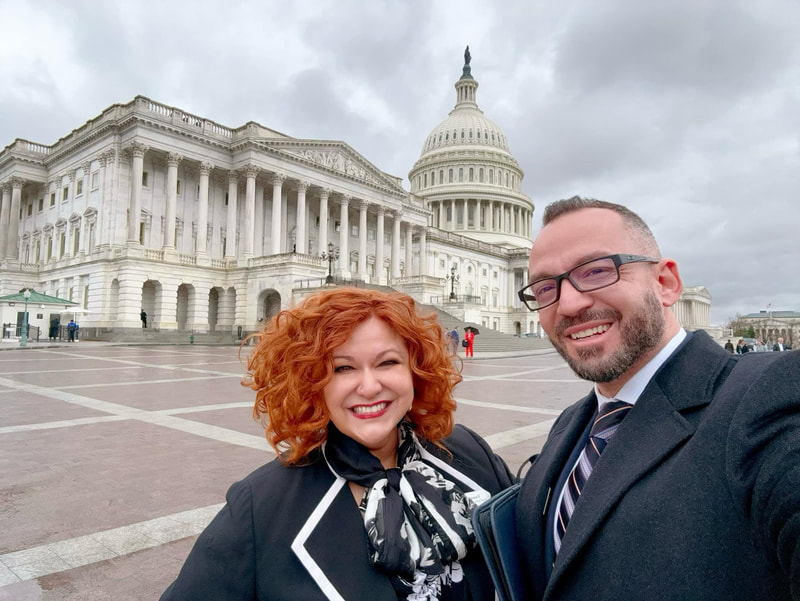|
As a member of the Independent Educational Consultants Association (IECA), I was honored to be one of only 2 counselors in Texas invited last month to participate in DC Advocacy Day. This was an all-expense-paid experience to be trained on lobbying for certain college-related bills and to advocate for legislation through our representatives in Congress. I was partnered with another Texan college consultant, Ibrahim, President of IECA, who accompanied me throughout the event as a partner and mentor. I've visited Washington DC numerous times before to visit colleges, but had never had the pleasure of visiting the US Capitol nor lobbying to legislators there. I spent much of my career in the college counseling offices of public high schools, and I never thought that I'd someday have the opportunity to do something so...well...so grand. When you work in a high school, especially serving under-resourced communities, it can be difficult to have the time and energy to see outside of your school community with the enormous workload and responsibilities you are charged with. In addition, although I've presented at multiple national conferences and regularly interact with community leaders through both college events and the clientele I serve- it was initially intimidating to accept such an important role without prior lobbying experience. I’m a bit of a perfectionist at heart and wanted to do justice to the voices of students that I serve. The IECA equipped the 16 consultants in attendance with the training we needed by hiring Advocacy Associates. Kyle Matous worked closely with us to give us the insider’s scoop on how to advocate for our bills with legislator aides, as well as the faux pas to avoid (e.g. avoid too many attempts at humor or advocating for personal causes not on the agenda). The day of the event, Tuesday, March 5th, Ibrahim and I had appointments to meet with with Alaura Ervin, Legislative Aide to Senator John Cornyn, and Meghan Hunt, Legislative Aide to Representative Lloyd Doggett. After our first meeting, I immediately felt all of that intimidation melt away. Alaura and Meghan were both incredibly friendly and demonstrated concern for the issues we presented. Thankfully, these weren't the contentious conversations I imagined when first invited to participate. When we weren’t in meetings, Ibrahim and I also stopped by Senator Ted Cruz’s office to drop off information, ate in the cafeteria of one of the legislative buildings (pure chaos), and stopped for photos around the Capitol building. At the end of the day, I felt privileged to have experienced something new that increased my understanding of impacting college access at a national policy level. I’m grateful for the advocates who visit our legislators regularly to promote student well-being and college access! I hope to continue to expand the avenues through which I'm able to amplify student voices as a college counselor. If you'd like to read more about the specific bills we were promoting, please see the file attachments below.
By: Yvonne espinoza, cepNationally recognized college counselor, advocate, and champion of college access. |
Yvonne Espinoza College Counseling Services
provides professional, personalized college planning
and admissions counseling to students and families
seeking tailor-made services from a highly experienced guide.
provides professional, personalized college planning
and admissions counseling to students and families
seeking tailor-made services from a highly experienced guide.
HOURS
|
FOLLOW
|
CONTACT
|
